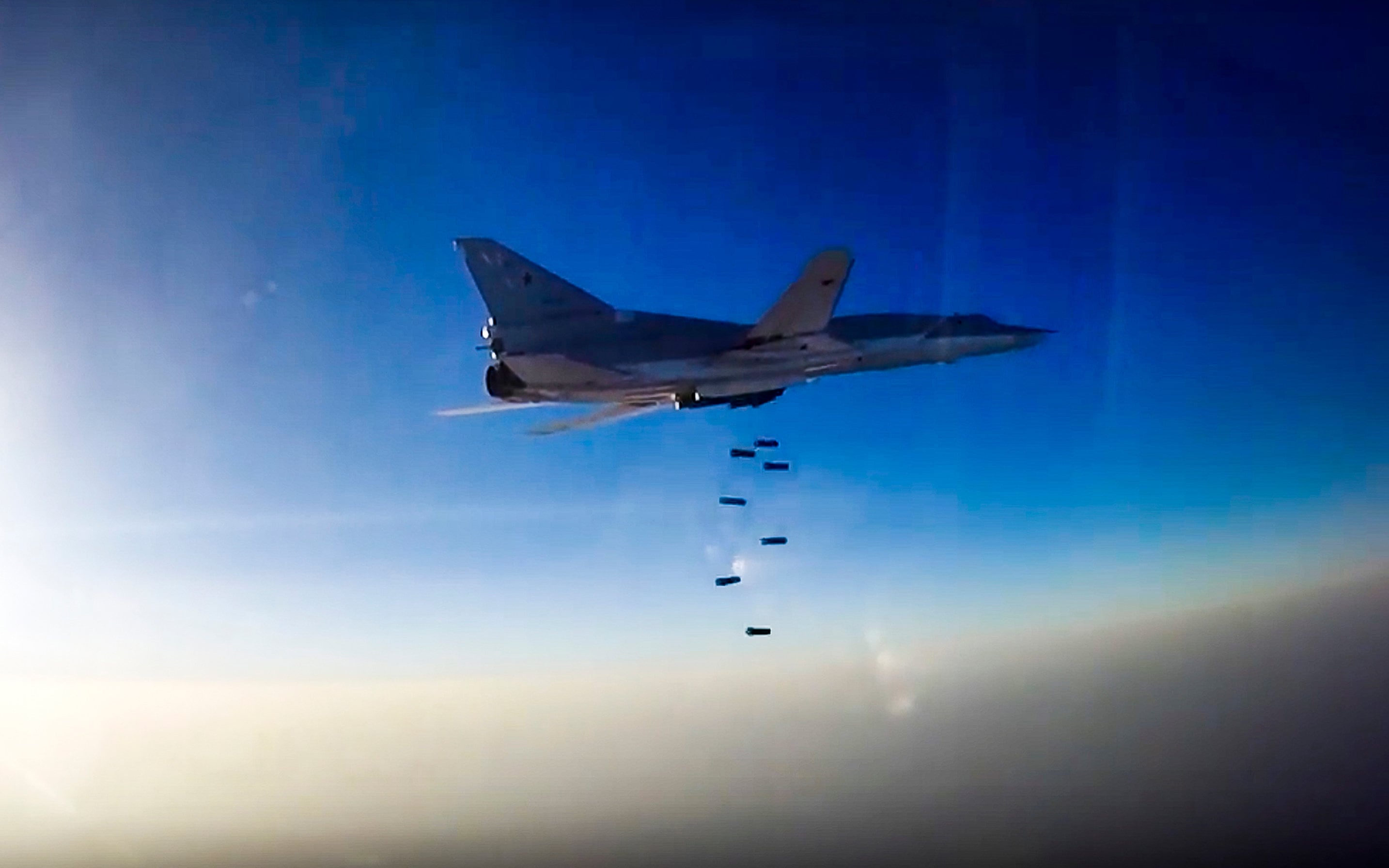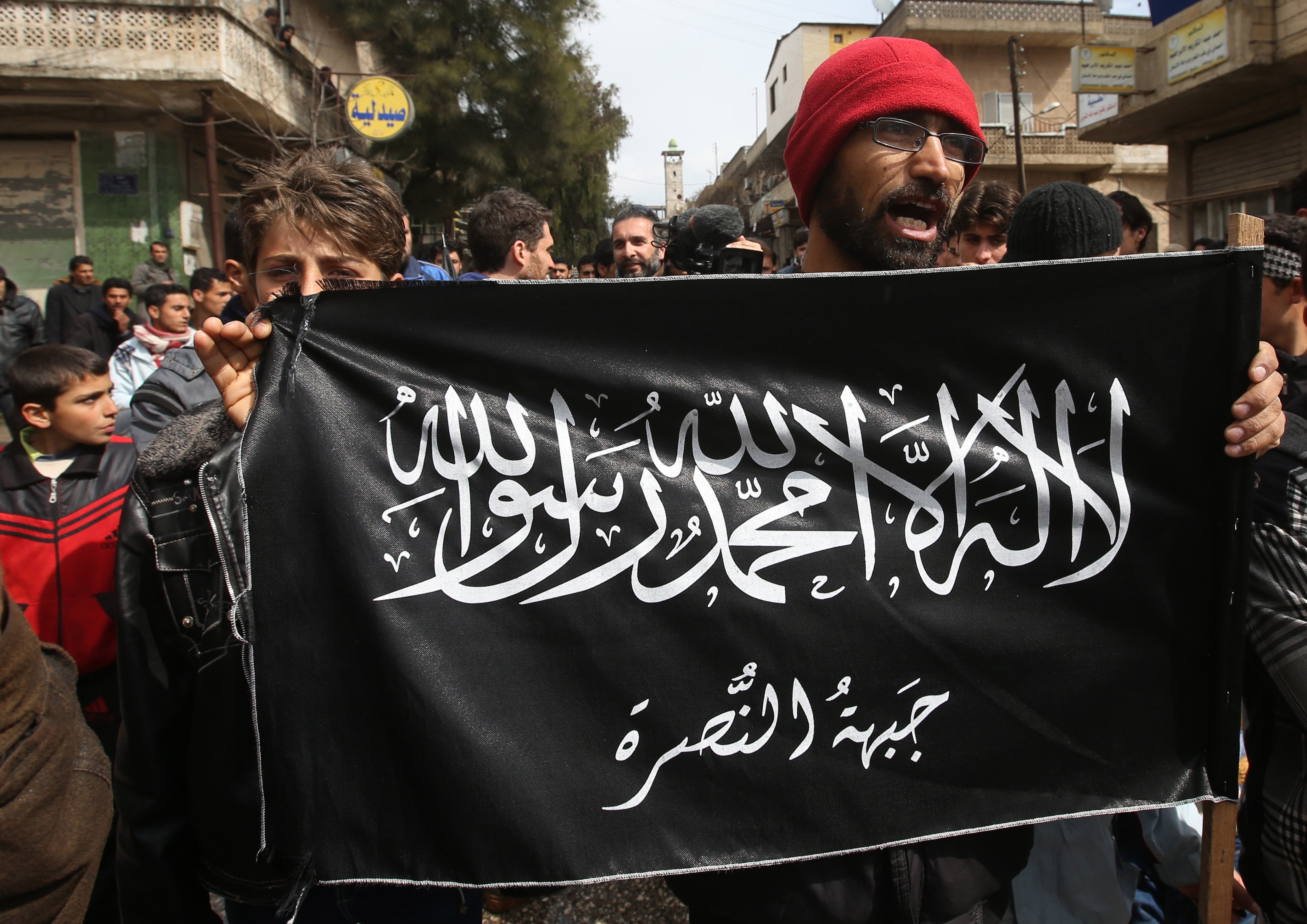The deal for U.S. military cooperation with Russia would expand the current mission in Syria far beyond its exclusive focus on the Islamic State group.
And the Pentagon is not happy about it.
The agreement forged by Secretary of State John Kerry and his Russian counterpart could, for the first time, broaden the American-led air campaign's target list to include al Nusra, the notorious al Qaida-linked group that is a major actor in the multi-sided Syrian civil war. Until now, the two-year-old U.S. air campaign in Syria has been limited to ISIS.
"This could be massive mission creep," said Josh Landis, director of the Center for Middle East Studies at the University of Oklahoma. "The military is pissed off because they're being asked to do two jobs now. They were asked to do one job, which is kill ISIS. Now John Kerry is asking them to do another job, which is cooperate with Russia and kill al Nusra."
The cease-fire deal reached Sept. 9 calls for the two former Cold War rivals to set up a joint facility for sharing intelligence and coordinating airstrikes against ISIS and al Nusra. The key requirement is adherence to a seven-day cease fire that calls on the Syrian regime and Russia to halt attacks around the city of Alleppo, which has experienced some of the war's most horrific violence, and allow for sustained delivery of humanitarian aid.
The details remain unclear. Some U.S. military officials are suggesting that the "cooperation" between the U.S. and Russia may be narrowly defined to involve only sharing intelligence with the Russians and deconflicting air space rather than expanding the target list for U.S. aircraft.
The top U.S. general overseeing the air campaign would not say whether the target list will expand to include al Nusra. "That's yet to be figured out. I think, again, you know, we've got to get through these seven days of cessation of hostilities," Lt. Gen. Jeffrey Harrigian, commander, U.S. Air Forces Central Command, told reporters this week.

In this frame grab provided by Russian Defence Ministry press service, Russian long range bomber Tu-22M3 flies during an air strike over Aleppo region of Syria on Aug. 16, 2016.
Photo Credit: Russian Defence Ministry Press Service photo via AP)
The seven-day ceasefire could be completed by Tuesday. Top U.S. military officials plan to meet Monday to begin hammering out the details of the "joint integration center"
that will be the hub for the military cooperation with Russia, according to one defense official.
"It is a significant increase in the mission," said James Stavridis, a retired Navy admiral and former head of U.S. European Command who is now the dean of the Fletcher School of Law and Diplomacy at Tufts University. Stavridis said the broader aim of the agreement is to expedite diplomatic negotiations to end Syria’s complex and catastrophic civil war.
"The big news is that the U.S. and Russia are at least talking," Stavridis said. "That begins to crack open the possibility of a political settlement. Without cooperation between the U.S. and Russia, we're never going to get to a resolution."
Stavridis said he supports the deal for military cooperation in part because "in the end more bombs will fall on ISIS."
But U.S. and Russian commanders will likely experience tension over selecting and prioritizing targets. The Russians are more focused on al Nusra because that group poses a bigger threat to Syria’s major cities and the survival of President Bashar al Assad, a key Russian ally.
"Going into this, the U.S. wants overwhelming attention paid to ISIS targets. The Russians would much rather see the targeting of al Nusra. It’s going to be a negotiation on the ground between colonels and one stars that are putting together targeting lists," Stavridis said.
Those negotiations could get ugly.
"They’re going to get into the nitty-gritty targeting disagreements," said Jacqueline Lopour, a former CIA analyst who is now a research associate with the Centre for International Governance Innovation
in Canada.
"What if there’s a target and the Russians say ‘Our information says this is a terrorist’ and the U.S. says no, it’s not? They say ‘Show us your information’ and the U.S. says 'No, we’re not going to compromise our sources.' It’s going to get messy," Lopour said. "What happens if someone vetoes a target and the other side goes ahead and strikes it anyway?" she said.

Protesters opposed to Syrian President Bashar Assad hold the Jabhat al-Nusra flag during a 2013 demonstration in Kafranbel, Idlib province, northern Syria.
Photo Credit: Hussein Malla/AP
Complicating matters are the links between al Nusra militants -- who at times fight against ISIS -- and the American-backed rebels that the U.S. considers to be moderate.
"There’s a lot of ‘the enemy of my enemy is my friend,’" Lopour said. "It’s all quite muddled and complex."
The U.S. has teams of special operations troops on the ground in Syria to support some Sunni Arab militias in fights against ISIS. Other Sunni Arab groups receive money and weapons from the U.S. In some situations, they fight alongside al Nusra militants against common enemies like ISIS.
That ambiguity will frustrate the Russians.
"The Russians would like to make it black and white, and say 'U.S., you tell your guys to separate form Nusra.' But I can’t see the U.S. being that black and white about it," Lopour said.
Determining who's associated with al Nusra will be a big challenge. And it will also be a matter of life and death for many Syrians, said Bassam Barabandi a former Syrian diplomat who now lives in Washington and helps run People Demand Change, an international development group focused on the Middle East.
"We have to separate Nusra into two categories. The ideological people who came from Afghanistan, the jihadis. Those people are crazy. They are a threat to the whole of humanity," Barabandi said. "But then we have the majority of the people who are not so much affiliated with this ideology. They are affiliated with this group because of a lack of alternatives and because al Nusra has been successful in fighting the regime.
"If you target them, that will mean you are killing thousands of Syrians."
Harrigian, the Air Force general overseeing the air campaign in Syria, said the American commitment to avoiding civilian casualties will remain intact regardless of any military cooperation with Russia.
"Our process won't change," he said. "We are going to continue to execute with precision; ensure that as we develop targets, we fully understand them."
Andrew Tilghman is the executive editor for Military Times. He is a former Military Times Pentagon reporter and served as a Middle East correspondent for the Stars and Stripes. Before covering the military, he worked as a reporter for the Houston Chronicle in Texas, the Albany Times Union in New York and The Associated Press in Milwaukee.





